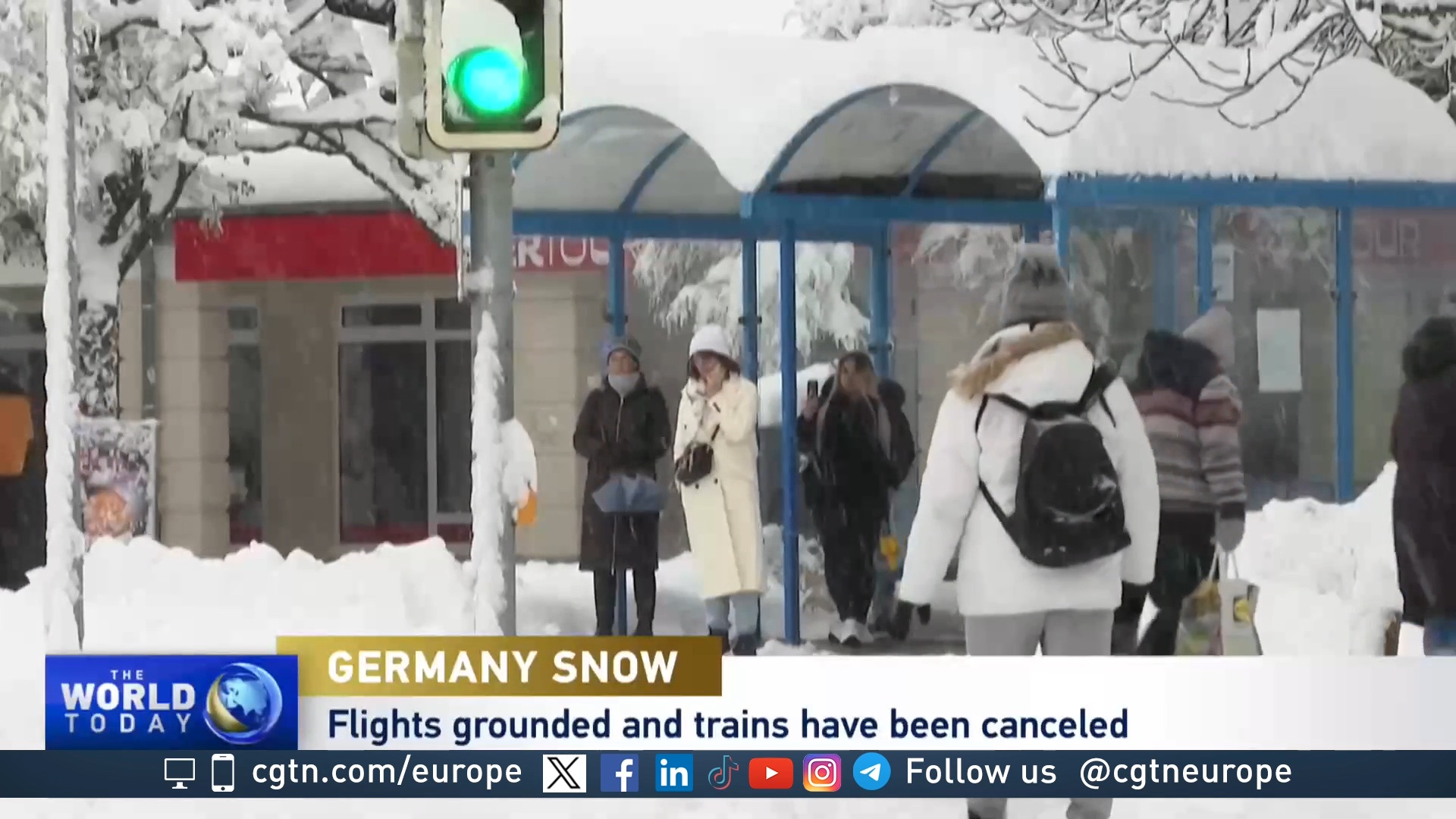02:09

A true winter wonderland. That's what many are calling the 40 centimeters of snow that fell on parts of southern Germany over the weekend.
While local parks were full of children immersed in sledding, snowman building and snowball fights, much of the population has been dealing with heavy transport disruptions.
Three days of continual snowfall ended on Saturday, an unusual weather event so early in the winter. In the city of Munich local transportation was disrupted, as were long distance train across the south.
Munich Airport, the second busiest in the country, closed on Saturday and Sunday morning to clear away as much as 1.6 million cubic meters of snow, according to an airport spokesman, the equivalent of a full season of snowfall.

READ MORE:
Why is Rishi Sunak watering down the UK's climate pledges of COP26?
Germany finally warming to solar power benefits
Water crisis forces Tunisia to boost sea and wastewater purification
While flights resumed at 6am on Sunday, 600 of the 890 planned takeoffs and landings that day were canceled. On Monday flights were still heavily restricted and by Tuesday morning all takeoffs and landings had been cancelled due to freezing rain.
Many long distance train connections to and from Munich are still undergoing disruption.
Schools across the state were closed on Monday to clear snow and ice from rooftops, with optional distance learning offered to students who struggled to reach school, as many roads faced icy or slushy conditions or were closed due to fallen trees.
On the positive side, the early dumping of snow was great news for the region's ski hills, which have suffered in recent years due to warmer than usual winter temperatures.
Bavaria's highest peak Zugspitze, where 32 centimeters of snowfall was reported on December 1, opened with reduced capacity - the earliest start for the popular ski hill in years.
It's expected to take a few days longer for a return to normality across the city.
According to meteorologists, the extreme conditions were brought about by trapped cold air meeting very humid air that pushed up against the Alps and descended as snow.
As much of the world meets in Dubai for COP28, the World Meteorological Organization (WMO) has warned that the average temperature for the year would be around 1.4 degrees Celsius higher than pre-industrial times.
While global weather patterns clearly do not always correlate with local weather conditions, they can influence them, explaining the humid air seen in southern Germany.
Subscribe to Storyboard: A weekly newsletter bringing you the best of CGTN every Friday